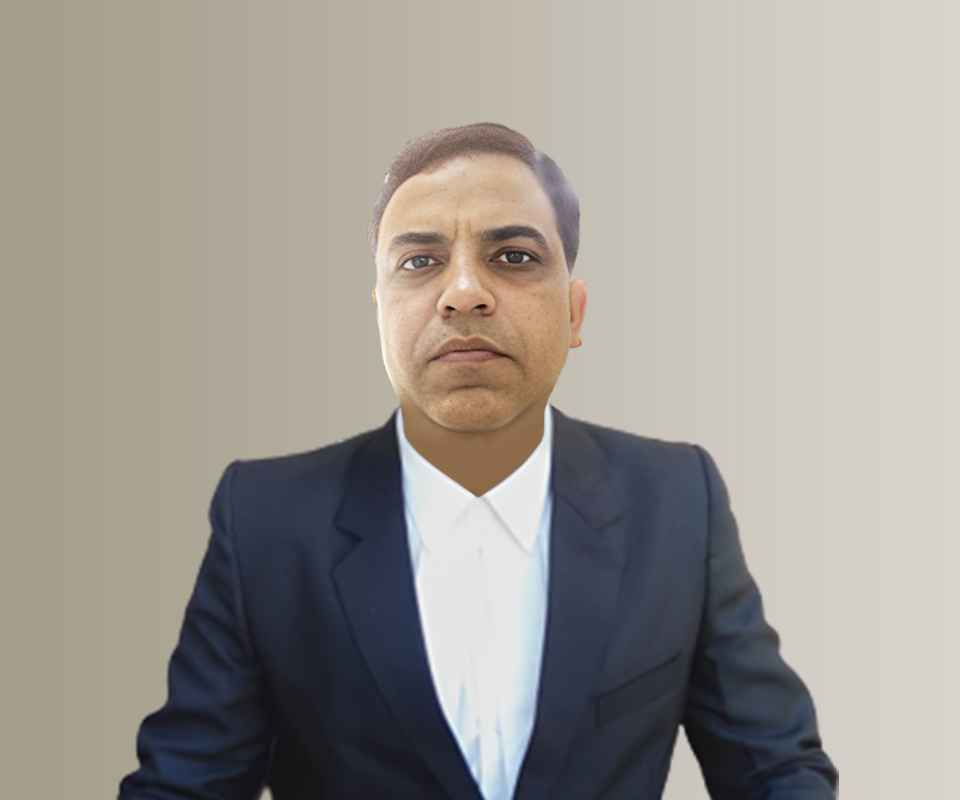Answer By law4u team
Making minimum payments on long-term debt, such as credit card balances or loans, can have significant consequences on both the total cost of the debt and how long it takes to pay off. While making the minimum payment might seem like an affordable option in the short term, it often leads to paying far more than the original amount borrowed, and it can stretch the repayment period for many years. Understanding the impact of minimum payments is crucial for making informed financial decisions.
How Minimum Payments Affect Long-Term Debt:
- Slow Repayment of Principal:
- What Happens with Minimum Payments: When you make only the minimum payment on long-term debt, a large portion of your payment typically goes toward paying off the interest rather than the principal (the original amount you borrowed). This means that the balance of your debt reduces slowly, and the principal amount can remain high for a long time.
- Example: Suppose you have a credit card balance of $5,000 with an interest rate of 18% APR. If your minimum payment is $100 per month, a significant portion of that $100 will go toward paying the interest rather than reducing the principal. As a result, your debt will take longer to pay off and cost more in interest over time.
- Impact: If you continue making only the minimum payment, it could take decades to pay off the balance, depending on the interest rate and how large the minimum payment is.
- Increase in Total Interest Paid:
- How Interest Accumulates: Credit cards and many types of loans charge interest on the remaining balance each month. When you make the minimum payment, the interest compounds on the balance, causing your debt to grow over time, even though you are making payments.
- Example: With a $5,000 balance and an 18% APR, making only the minimum payment of $100 per month could result in $900 or more in interest charges per year. Over the course of several years, you might end up paying significantly more in interest than you originally borrowed.
- Impact: Over the life of the loan, making only minimum payments can lead to thousands of dollars in extra interest payments, especially if the debt has a high-interest rate, like credit card debt.
- Extended Repayment Period:
- Length of Time to Pay Off Debt: If you continue making minimum payments, your debt will take much longer to pay off than if you were making larger payments. The length of time it takes to repay your debt depends on several factors, including the interest rate, the size of your debt, and the minimum payment required by the lender.
- Example: On a credit card balance of $5,000 with an 18% APR, making only minimum payments could stretch the repayment period to 10–15 years or more. For some loans, it could take decades to pay off, depending on the amount owed and the interest rate.
- Impact: This extended repayment period means you will be carrying debt for a much longer time, which can hinder your ability to save for other financial goals, like buying a home, investing for retirement, or paying for education.
- Debt Accumulation:
- Compounding Interest: When the principal balance decreases slowly due to small minimum payments, and interest continues to accrue, your debt can grow, even if you’re paying each month. This phenomenon is known as negative amortization, which can cause your debt balance to actually increase instead of decrease, depending on the interest rate and payment terms.
- Example: If you carry a balance of $2,000 at 20% APR and make only the minimum payment of $50 per month, your payments might not be enough to cover all the interest. As a result, you could end up owing more than you initially borrowed, especially if you continue to charge additional purchases to the card.
- Impact: This leads to increasing debt over time, making it harder to pay off and creating more financial stress.
- Credit Score Impact:
- Effect on Credit Utilization: Credit utilization (the percentage of available credit being used) is a key factor in determining your credit score. If you make only minimum payments and carry a large balance, your credit utilization ratio stays high, which can hurt your credit score. A high credit utilization ratio (above 30%) can signal to creditors that you may be over-leveraged or struggling with debt.
- Example: If your credit limit is $5,000 and you carry a balance of $4,000, your credit utilization ratio is 80%, which can negatively impact your credit score. A lower credit score can make it harder to qualify for future loans, mortgages, or credit cards, and can result in higher interest rates on new credit.
- Impact: Maintaining high credit utilization due to minimum payments can keep your credit score low, making it more difficult and expensive to borrow in the future.
Example of the Impact on Credit Card Debt:
Let’s look at a scenario where you owe $5,000 on a credit card with a 20% APR and a minimum payment of 2% of the balance.
- Initial Debt: $5,000
- Interest Rate: 20% APR
- Minimum Payment: 2% of the balance (i.e., $100 in the first month)
If you make only the minimum payments, a large portion of your first payments will go toward the interest, and only a small part will reduce the principal. Over the next few years, the debt could take over 25 years to pay off, and you would end up paying more than $10,000 in interest charges alone, nearly doubling your initial debt.
How to Avoid the Negative Impact of Minimum Payments:
- Pay More Than the Minimum:
- Paying more than the minimum payment allows you to reduce the principal more quickly, which will reduce the amount of interest you pay over time. Even paying an extra $50 to $100 per month can make a significant difference in how long it takes to pay off the debt and how much interest you pay.
- Example: If you increase your payment by just $100 a month, you could pay off your $5,000 debt in 3–4 years instead of 25+ years, significantly reducing the total interest you’ll pay.
- Consider a Debt Snowball or Debt Avalanche Strategy:
- The debt snowball method involves paying off your smallest debt first, while the debt avalanche method focuses on paying off the debt with the highest interest rate first. Both strategies can help you pay down debt more efficiently.
- Debt Snowball Example: If you have multiple debts, pay off the smallest one first and then apply the money you were paying toward that debt to the next smallest, and so on.
- Debt Avalanche Example: Prioritize paying off the debt with the highest interest rate first, which will save you more money in interest in the long run.
- Refinance or Consolidate Debt:
- If you have high-interest debt, consider transferring your balance to a credit card with a 0% APR introductory offer or consolidating your debt into a personal loan with a lower interest rate. This will help reduce the amount of interest you pay and allow you to pay off your debt faster.
- Example: If you consolidate $10,000 of high-interest credit card debt into a loan with a 5% interest rate, you can significantly lower your monthly payment and pay off the debt more quickly.
- Automate Payments and Track Progress:
- Set up automatic payments that exceed the minimum payment to ensure you’re consistently reducing the balance. Regularly track your debt reduction to stay motivated and on track.
Conclusion:
Making only the minimum payments on long-term debt can have significant consequences, including slow repayment, high interest costs, and potential damage to your credit score. While it may seem like an easy option in the short term, paying only the minimum can prolong your debt and make it more expensive in the long run. To manage debt effectively and reduce the total amount you pay, aim to pay more than the minimum, consider debt-reduction strategies, and explore options for refinancing or consolidating high-interest debt. Let me know if you'd like more strategies for tackling long-term debt!







